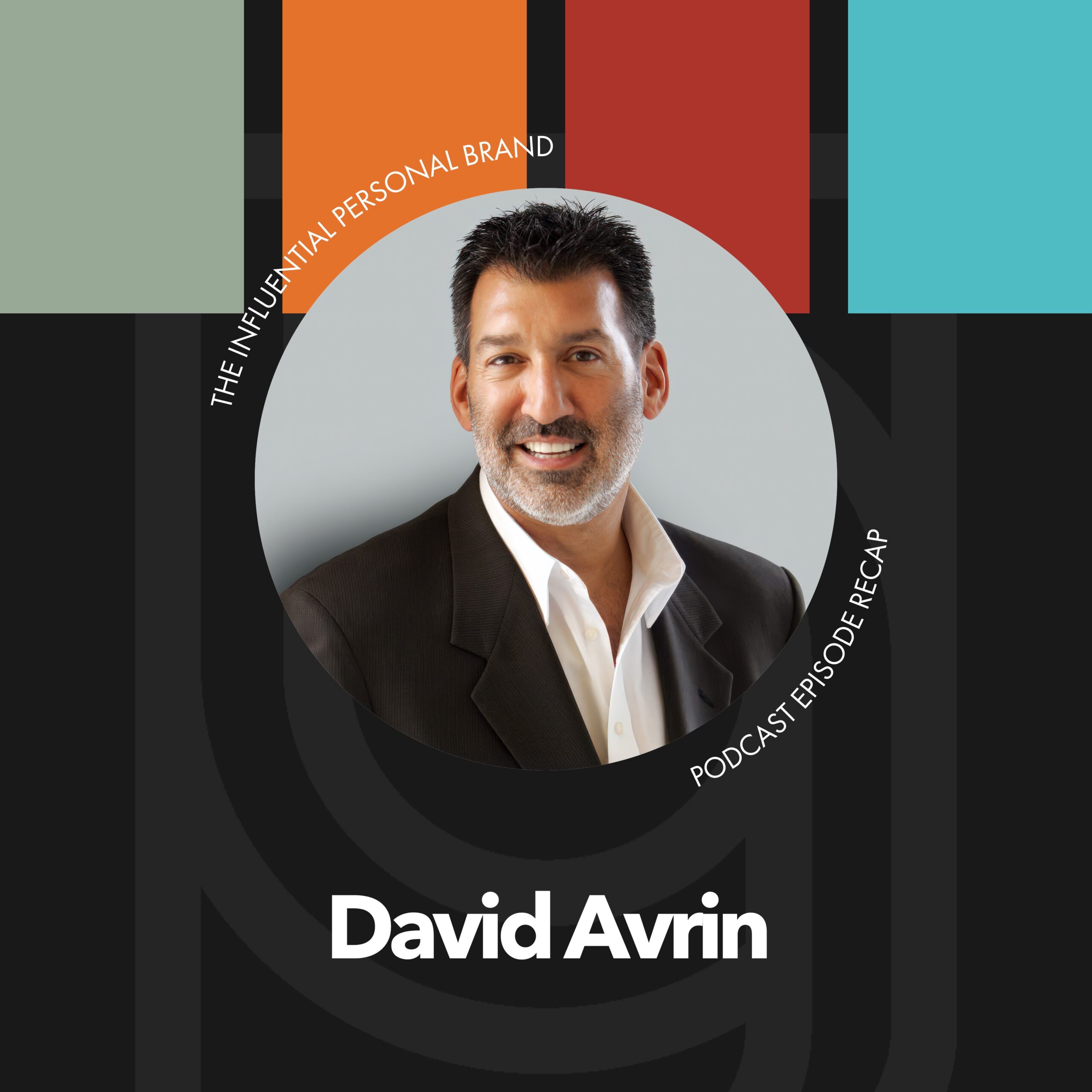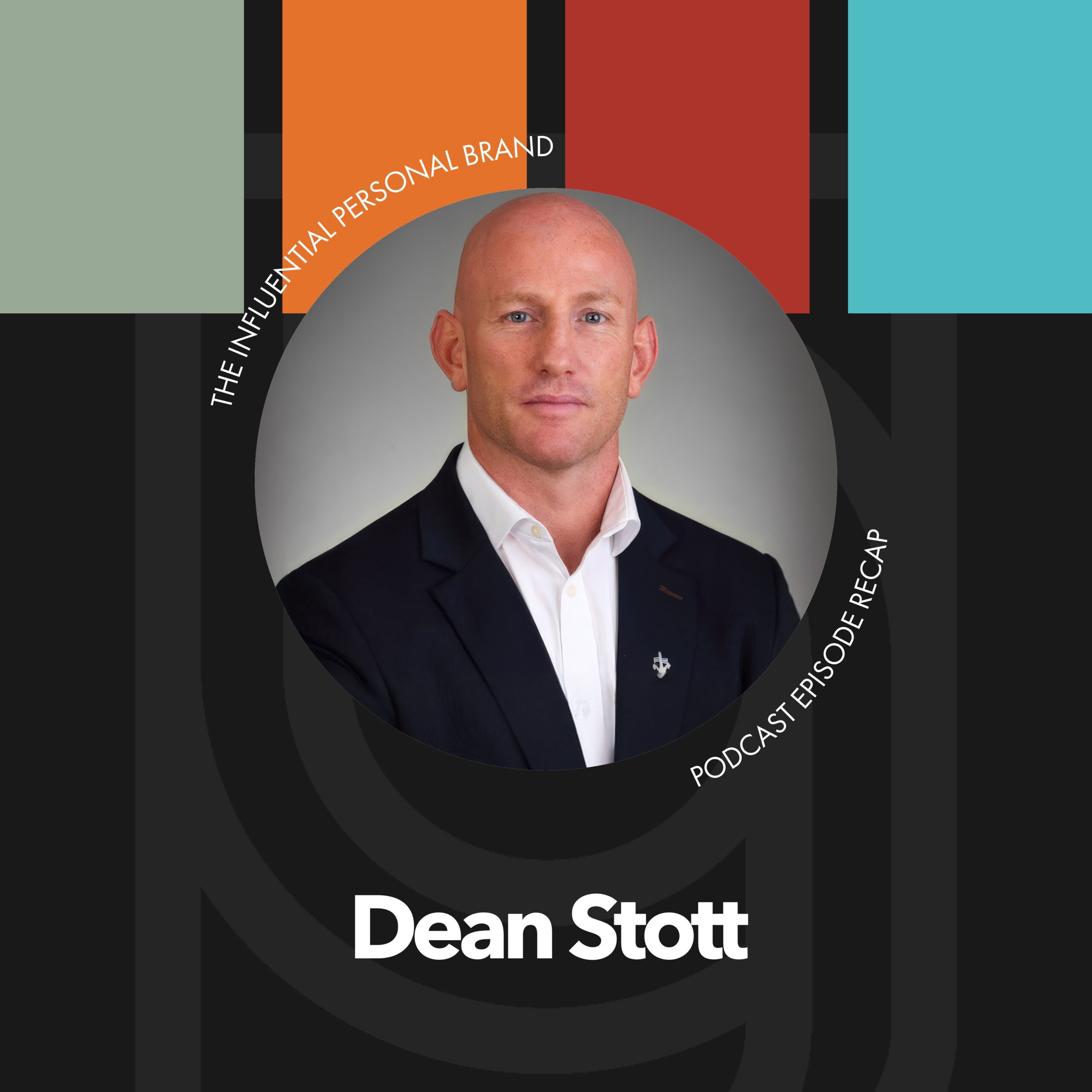RV (00:02):
Dan Martel, my guy. I gotta tell you, I really enjoyed my conversation with Dan. And I am I’m actually reading his book. I don’t always get to read every book of every author, but I’m, I’m loving it. I’m about halfway through it, and I’ve just really enjoyed following this guy. You know, like the people I follow online, I, I like to really follow people I guess, you know, that I consider are practitioners like, that. They’re actually building really big things in real life. And, and, and it’s, it’s not so much just perception and that, but like, they actually have big businesses and stuff. So I love to sort of follow and learn from. And, and Dan has done that a lot and has a great reputation and we’ve become friends. And I, I really, really enjoyed getting to know him a little bit.
RV (00:49):
And, and and I’m, I’m a fan. I’m a fan. So, you know, obviously the, the theme of his book and everything about Buyback Your Time really brought up a lot of memories for me and around my second book, which was How To Multiply Time. So Procrastinate on Purpose, five Permissions to Multiply Your Time, which I don’t talk as much about these days anymore since we’ve you know, the company that we, we exited in 2018, we had spent more time talking about stuff there. And then Brand Builders Group, the last five years has really been focused on building people’s personal brands. But I thought I would take this opportunity to share some of my favorite time multiplication strategies that came out of my second book. And you know, sort of sync ’em up with some of the things that I’ve been inspired by Dan here, again, to help you get better control of your time and specifically for entrepreneurs, right?
RV (01:46):
And so that’s who this is really for, is if you are an entrepreneur and you’re busy and you’re buried and you’re overwhelmed and you feel behind and you feel like you’re, you know, drowning, or you’re struggling to keep up, like these are the three biggest concepts that you need to know that I think and I know confidently will change everything for you. And the first one is the ultimate premise of how to multiply time. So, by the way, my TED Talk, you can go watch for free my TED Talk. If you just, you know, Google Rory Vaden Ted Talk, you can watch that for free. Or you, if you actually were to watch the Ted Talk or if you were to read Procrastinate on Purpose, my second book, the premise of both of them is the same, right? They’re based on the same content. And to me, this is the, this is the singular big idea that you must understand as an entrepreneur. And if you don’t understand this, until you embrace this, you’re gonna struggle. You’re just, you’re gonna always keep working faster and longer buying into this lie that if you work harder, somehow it will create more time. And it’s not
RV (02:58):
About that. That is not what creates more time. The way that you multiply time is by giving yourself the emotional permission to spend time on things today that create more time tomorrow. You, you give yourself permission to spend or invest time into the thing doing the things today that create more time tomorrow until that switch flips in your brain, you’re gonna struggle, you’re gonna be busy, you’re gonna be buried, you’re gonna be behind, you’re gonna feel like you’re drowning. You’re gonna feel like like you’re going to, to to live consumed feeling like you’re never caught up. And it’s because you have to break free of the paradigm of just urgency. The paradigm of urgency is I have to work faster, I have to do more. And you have to shift to what we call the significance calculation, which is thinking not about, you know, urgency is how soon does something matter, but significance is how long does it matter?
RV (04:02):
What’s the impact of this activity on tomorrow and the next day and the next day? And so you have to start thinking in terms of significance, not just what fire needs to be put out today. You need to be evaluating your dec your, the decisions of how you spend your time through the lens based upon the criteria of significance. In other words, how is this activity, how is this use of my time going to affect tomorrow and the next day? So I can do it today, but if I do it today, I have to then do it again tomorrow. If I, however, forego doing it today, and instead build a system today that can do it, then tomorrow the system will do it and every day thereafter, the system will do it instead of me. And that is the switch that has to flip. This is one of the things that I wrote in procrastinate on purpose, is that the next level of results requires the next level of thinking.
RV (05:08):
What got you here to where you are today as a performer will not get you there as a leader. You, you have to shift. This is a paradigm shift. It is a mental transformation, right? And, and this is the crux. This is what we know is true, that if you don’t make this transition, you’re gonna struggle. And those of you that are members of ours, by the way, we, one of the 14 courses that you have access to from us is called Multiplier mentality. So you, you, if you’re one of our members, you already have access to this course, you can go through, it’s one of our personal development courses. We don’t talk as much about it these days cuz we’re so focused on like the tactical, personal branding stuff. But so that’s the, that’s the first thing is how do you multiply time?
RV (05:51):
You multiply time by spending time on things today that create more time tomorrow. Don’t just do it. If you do it, you’re going to trap yourself into a lifelong prison sentence of having to do it again tomorrow. So instead of doing the thing, build a system to do the thing. Spend your time today, build systems that do the thing, and then tomorrow you will live free. Because instead of spending your time doing the thing, the system that you have built will then do the thing. And there’s basically, you know, five parts to that system which make up the focus funnel, which is the content of my TED Talk and the multiplier mentality course and the procrastinate on purpose book. But that’s the premise. Okay? So that’s the first thing. That’s the big idea. You gotta understand. Second big concept you need to understand is the concept of time arbitrage.
RV (06:46):
Time arbitrage basically meaning you, you, you make your win in the delta. So arbitrage is going, I’m gonna buy something, you know, I’m gonna buy something at X, but I’m gonna sell it at y, right? That’s basically arbitrage is going, I buy something at X, but then I turn around and I sell it at y and I make my money in the spread. I make my money in the delta. Well, that’s what multiplying time, a lot of multiplying time has to do with time arbitrage, specifically in the area of delegation. So the focus funnel from this, you know, the procrastinated purpose book, my How to Multiply Your Time, Ted Talk, and the Multiplier Mentality course, if you have access to it talks about five, the five parts of the focus funnel, eliminate, automate, delegate, concentrate, and procrastinate on purpose, which is where the title of the book comes from.
RV (07:44):
But in, in section three delegate, that is what time arbitrage is all about. Basically going, I am going to buy someone else’s time at X dollars and then I’m going to engage myself in activities that produce results at y dollars. Now, the concept for this, the principle that we teach is called M v o m v O T, it stands for the money value of t of your time, the money value of your time. Dan actually refers to a similar concept in his book. He calls this your buyback rate which is basically going, what is your time worth? So the way you figure out what your time is worth is you take every, you take your income, right? Like just go to your taxable income you know, or if you’re an entrepreneur, you might have to like add back some of your tax deductions to get to like what is your, what is the total amount of money you made last year personally, like for your personal time, whether it was salary or if it was commissions, or whether it was through your 10 K and it was profits or it was dividends.
RV (08:51):
Like if you just go, how much money do I make in a course of a year, all of the sources. And then divide that by 2080, which is the number of working hours in a year that will give you an hourly rate. We call that rate your m v o, the money value of your time, meaning every hour of your time is literally worth, let’s call it let’s just, let’s call it $48 an hour. Okay? So I think let’s just, well, let’s look, okay, a hundred thousand. If you made a hundred thousand dollars a year, okay, divided by 2080 doing this math on the fly here, that’s $48 an hour. I was right. Okay, so that means if you make a hundred thousand dollars a year, you get paid $48 an hour. So the concept of time arbitrage is to then say, what are all the activities that I am doing in my business or in my life that I could hire someone else to do for less than $48 an hour?
RV (09:57):
Then what I do is I go, I’m going to do that. I’m going to hire those people to do those things, right? And this could be everything from an assistant to manage my inbox and calendar. This could be someone to cut the grass, do the grocery shopping, cook for the kids c clean the house. It is doing my social, managing my social media writing copy, doing graphic design. Like what are all of the tasks that you can get done? And you make a list of those for less than $48 an hour. And then you actually hire those people and you go, great, I’m going to arbitrage my time. I’m going to pay them. Let’s say let’s, I don’t know, let’s just use $20 an hour. I am now going to pay those people $20 an hour. And with the hour that I now have where I’m not doing the thing that I hired them to do, I am now going to repurpose that hour into activities that generate me $48 an hour, like selling or like marketing or doing content creation or building relationships or what, whatever it is.
RV (11:04):
Like whatever are the key income drivers of, you know, or the key revenue drivers of your business or the key income drivers for you personally, I’m going to reinvest my time. So part of the issue, again, this is a mental block, this is a limiting belief. This is what holds entrepreneurs back is they go, well, Rory, I can’t afford to pay someone $20 an hour to do those things. I don’t have it. And the answer, you know, the thing that I I need you to know is you already are affording it. You are already paying someone because you’re either paying them at their rate or you’re paying yourself at your rate. So if you are doing that task, you are paying someone for it. You’re paying yourself and you’re paying yourself at $48 an hour, you’re paying $48 an hour for you to do the task instead of paying $20 an hour for someone else to do the task.
RV (12:02):
And so this is how you ratchet up, this is how entrepreneurs ratchet up their income. But if you never learn to do this, then you stay stuck doing tasks at lower rates of pay, and you never free up your time to spend time on the things that pay higher rates of pay, like, you know, selling and, and, and building relationships and doing strategic things and building content and building your brand and personal development and, and, and education and you know, all these things and building systems, right? Building systems is one of the, one of the highest value uses of your time because it multiplies time. So that’s what happens. The reason you’re stuck is you are stuck doing all this stuff both personally and professionally, and you’re paying, you’re charging yourself too much because you are doing it. So you already are paying the money.
RV (12:54):
So that’s the, that is time arbitrage. And it’s going, okay, I’m going to buy someone else’s time at $20 an hour, and then I’m going to repurpose my time into things that do $48 an hour. And this is what, you know, basically billionaires do. All you do is you keep ratcheting it, ratcheting it up, and ultimately you go, yeah, I’m gonna pay, you know, $250,000 a year for a C-level executive to manage this function of my business. That’s a lot of money. And you go, yeah, it is a lot of money, but if you can make a million dollars a year by repurposing the time you would be spending doing that, doing something else, not only are you buying your time back, you’re also creating jobs for other people and you’re buying your freedom. So, but it’s, it takes it’s risk, right? It is risky and you have to have the, you have to first of all get past the mental blocks.
RV (13:44):
You have to think differently. Just like I said, the the next level of results requires the next level of thinking. The way that Einstein said it was, Einstein said, you can’t use the same level of thinking that created the problem to solve the problem. You have to adapt, you have to evolve, you have to be around people who have gone on this journey before you. And I think, I feel like it’s a good time to mention, if you’re not one of our members at Brand Builders Group, you should go to free brandand call.com/podcast and request a call with our team so that we can talk to you about what it looks like because our services are insanely affordable, in insanely affordable. When one, you become a member, you get access to 14 of our courses for less than what most people sell one course for, right?
RV (14:30):
So you know, you, you have in your disposal, in your immediate ability you know, the opportunity to access this education that is worth millions of dollars. And it doesn’t cost nearly as much as you, as much as you might think. So request a call free brand and call.com/podcast and talk to our, our team and we will help you with the mindset piece. But then you have to have the actual discipline to actually go spend that extra time on the activities that drive more income, and that takes risk and that takes discipline. And oh, by the way, we have a course called Conquering Impossible Goals, and a book called Take the Stairs that helps you with that and helps you build your discipline and create your ultra performance plan. And if, if you, you know, invest with us at a certain level, you’ll have your own private coach, you get to come to our events, right?
RV (15:20):
So that is the, the, the, the example that is how time arbitrage works. And you reinvesting into your own personal development is an example of time arbitrage. You’re going, okay, I could spend 10 years of my life learning how to become a bestselling author, or I could invest a couple thousand dollars and brand builders group can teach it to me in two days and I know it, and then I have it for the rest of my life. That’s time arbitrage. Personal development, self-education is one of the greatest examples of how to multiply your time. It’s getting coaching and, and you’re, you’re compressing time and you could learn it on your own. You could do that, but how long is it gonna take? And what is the M V o, what is the money value of that time? What’s the hourly rate of your time multiplied times how long it’ll take you to figure it out on your own?
RV (16:13):
Can you pay to just compress that time, whether through education or hiring people, time arbitrage. If you can get, if you can get past this limiting belief, if you can, if you can unlock this, this new level of thinking, then your, your mind will operate in a state that allows you to create more wealth. That’s why if nothing else, go watch my TED Talk. It’s free, right? Pay 20 bucks and buy my procrastinate on purpose book. We’ll walk you through the whole thing or become a member of ours and we’ll coach you through it step by step. But you’ve gotta understand time arbitrage to get to the next level. The third concept that is huge for multiplying time is something called the 10 80 10 rule. The 10 80 10 rule. And many people talk about this concept, I certainly employ it. And the way that this works is when there’s a new project, you can’t just hire someone and go, okay, I hired them, they’re gonna do it, and it’s just gonna be perfect and fine.
RV (17:22):
It should be done. Typically, that’s gonna end up at as a little bit of a train wreck. So what you do is you spend the first 10% with them, right? You map out the project, you give them the scope, you, you give them instruction, you lay it out, then the middle 80% is what they do for you. And then the last 10% you come back in and you kind of give them feedback, you tie together the loose ends, you polish it up, and you can like send it out the door. Where people go wrong or experience frustration with delegation is they try to delegate and then abdicate. They try to go, well, I paid this person to just solve this problem and it wasn’t perfect. And so delegation doesn’t work. That’s just not realistic, right? Like, people need more coaching and probably because you have a specific vision of what you want this to do.
RV (18:20):
Now, mathematically, some people will say, well, that’s frustrating because I’m paying someone to do a job that I am still doing. And the answer is yes, kind of. You are still doing part of it, but 80% of it you’re not doing. And here’s the thing, you gotta realize, 80% done right by someone else is always better than a hundred percent done right by you. 80% done right by someone else is better than a hundred percent done right by you. Because even if they only get it 80% right now, you only have to do 20% instead of a hundred percent. See how that works? Like, yes, it can be frustrating to hire someone and they don’t, they, they, you can’t just abdicate it. You can’t just go take this and do this. Very rarely does that happen. But if they can get, if they can carry 80% of the load, you still gotta be there for 20%, but that 80% is freed up for you to now reinvest.
RV (19:32):
So even if you can’t outsource the entire thing, it still makes sense to do this. But this is where most people just can’t get their mind wrapped around it. And, and so, and it doesn’t mean they’re bad people, it it, but it, it means you’re, you know, like your income’s gonna be limited as an entrepreneur and, and you’re gonna be really, really busy. For those of you that have more of an employee mindset, which is fine, right? There’s nothing wrong with it. The beautiful, you know, the hard part about mon, the hard part about being an entrepreneur is you take all the risk, right? You pay out the money, and now you gotta go backfill and make a sale to generate that money, otherwise you’re in trouble, right? So, and you gotta repurpose that time into something that creates more time and more income tomorrow.
RV (20:16):
So you take all the risk, but with the risk con comes the reward. And that’s why you make more money if you’re successful, you make less money. If you’re unsuccessful, the, the advantage of being an employee is you get a consistent pay no matter what, right? The, you don’t take the risk, the, your employer is taking the risk. And if that’s you, that’s fine too. Totally fine. You know, employees are so valuable to everyone, especially to entrepreneurs. But if, if you’re an employee going, okay, I wanna raise my income, one of the things that I would be thinking about if, if I were an employee is going, I wanna be around people and around businesses who are multipliers. I want to be in the proximity. This is one of the reasons why Tony Robbins says proximity is power. I wanna be in the proximity of multipliers.
RV (21:12):
Why? Because multipliers are always going to be reinvesting and they’re always going to be growing. So they may not be able to pay you top, top dollar now, but whatever they pay you, if you can help that multiplier perform at a higher level, they’re gonna reinvest it back into the business, into the systems and into you. And the longer you’re around, the more valuable you are for them because the more you’re helping them multiply time. And so as they ratchet up, you are going to ratchet up with them. So you’re kind of like riding in their wake. And that happens a lot, right? You go, what does Elon mi, what does Elon Musk’s personal assistant make? Or his chief of staff? I don’t know, but my guess is probably a lot more than $50,000 a year because of trust. And, and you know, they know the systems and you know, they know what he wants before he asks for it and the time.
RV (22:07):
So either way, whether you’re on the entrepreneurial path or you’re more on the employee path, be around multipliers. And by the way, if you’re an entrepreneur, even if you’re an entrepreneur, you wanna surround yourself with other multipliers. Case in point, right? Look at our clients, Louis Howes, ed Millet, Eric Thomas, Amy Porterfield, our revenue and my income has gone up. As I have surrounded myself with people like that, as I have served them right, as I have added value to them, I’ve helped them grow. And as a result, they’ve grown and they’ve brought us with them because those people are multipliers, right? So you always want to go, how can I be in the proximity of multipliers? Being in the proximity of multipliers? These are people who are creating jobs, they’re taking risk, they’re paying for results, and their time is worth a lot. And so as their time becomes worth more and more and more, they are able to afford to pay more and more and more, which means they’re gonna hire the people that are in their proximity.
RV (23:15):
So those are, those are concepts that I wish I would’ve understood when I was young. Like I would’ve made so much more money, so much faster. I’d made so much more impact, so much faster. I would’ve surrounded myself, frankly, with a lot of different people than I did. Although I did a, a good job, actually, I’ve done a pretty good job of surrounding myself with successful people. But these are the kind of mindsets it takes to go from somebody like me, born in a trailer park, raised by a single mom. You know, we couldn’t afford boxed cereal to, you know, now six different multi seven figure businesses and two multi, or two eight figure businesses that we have built. It’s the mindset your mind has to change. And so to become a multiplier, you have to learn how to think the way that multipliers think.
RV (24:13):
So those are just three, you know, simple ideas as multiplying time. I mean, again, I wrote a whole book on this subject. It is powerful stuff. It has the power to change your life. So I hope you’ll request a call and talk to our team, get plugged into what we’re doing, or at least stay plugged in here, right? This is, we’re, we’re, we’re giving you free, free insights and inspiration as much as we can to help you multiply your impact, your income to the next level. So share this episode with somebody who needs to hear it. Somebody you know in your life who’s an entrepreneur, somebody who wants to build their personal brand, somebody who’s busy, buried behind, and overwhelmed. Send this episode. Will will you. And if you get a chance, leave us a review on the, on iTunes. That helps a lot of other people figure out if this is the right show. And keep coming back. And thanks for being here. I hope we’re gonna, I hope and trust and am committed helping you continue to multiply. We’ll catch you next time.













